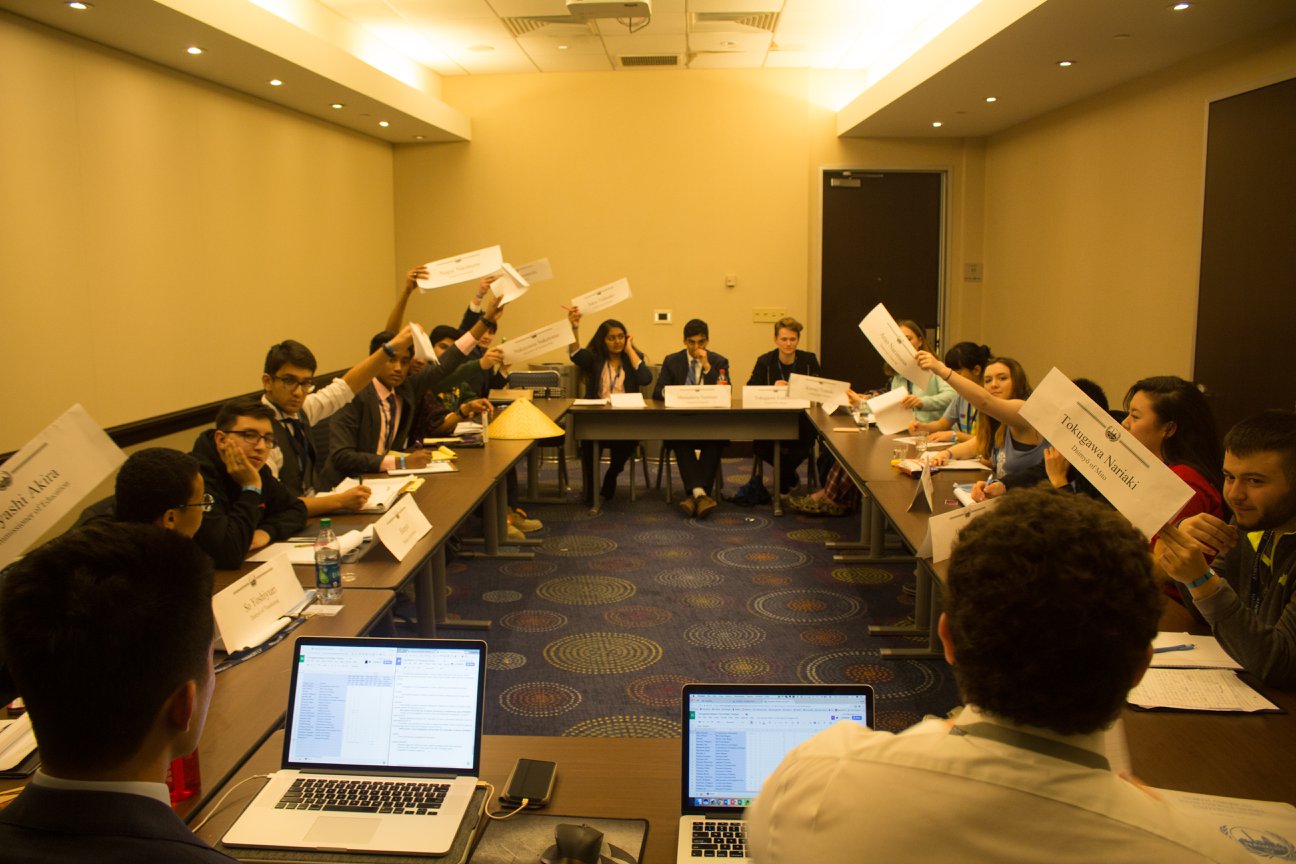The transition from high school to college can be one of the most difficult time periods of a person’s life; there are many new experiences, unfamiliar surroundings and people, and an entirely new routine. In preparation for this drastic change, high schoolers are frequently given one piece of advice: to get involved. Clubs help to build bridges between unfamiliar people, giving them a common topic to talk about and grow friendships through. Model UN is no different, as it builds these bridges and connects people through collaboration and debate. However, there exists an idea that experience is a pre-requisite for college MUN. On the contrary, starting Model UN in college may be more of an advantage than a disadvantage.
While many students have the desire to do MUN in high school, many high schools around the country lack the resources or collective desire to form an entire program. Although some top college teams around the country have try-outs or an application process, a lack of prior experience should not prohibit someone from trying MUN! There are many resources available to new delegates beginning at the University level to help learn the skills necessary to be a competitive delegate. College teams often have dynamic training schedules or mentor-mentee programs designed to teach new delegates the ins and outs of Model UN, while also guiding experienced high school delegates through the changes of college MUN. In addition, by participating in training sessions or even a conference, delegates are able to garner a much greater understanding of how committees operate. Through these resources, delegates lacking in prior experience are able to gain valuable knowledge, allowing them to act as a seasoned veteran in committee rooms.
One benefit of beginning MUN in college is the type of committees encountered on the collegiate circuit in comparison to those in high school. While crisis committees are becoming more common for younger delegates, they are far more prevalent on the collegiate level, with specialized committees now incorporating crisis elements into a GA setting that provides for a dynamic flow of committee centered around directives instead of resolutions. By beginning the process of learning MUN in college, delegates are more used to the quick-moving and crisis-oriented speed of committee. This trend is also met with the differences between high school and college MUN. College Model UN is entirely voluntary, leading to incredibly competitive committees stacked with passionate and involved delegates. By beginning in college, delegates have unclouded expectations of how the committees work, leading to a smaller adjustment period for those starting at this level.

College is a time of continual networking, professional development, and building bridges for potential future prospects. Model UN presents students with all of these opportunities. By building skills like critical thinking, public speaking, and collaborate project development, delegates are able to grow through their experience and develop these competitive skills. Through practices and training, these skills are even enhanced before they are put on display in a conference setting. Model UN has the rare capability to combine all these important abilities, making delegates extremely marketable when they exit university.
With all the benefits inherent in learning Model UN, starting in college should be encouraged, as it opens so many doors to networking, personal growth, and future marketability. While the transitional period will exist and may be difficult, starting MUN in college will only make you a stronger delegate, as you will have the opportunity to learn through experience and rely on others for guidance and advice. MUN should be open to everyone, as it fosters the values of collaboration and inclusion consistently taught through committees themselves. So, if you have an interest in MUN but are unable to participate in high school, give it a try in college. You may just be your school’s next head delegate!


